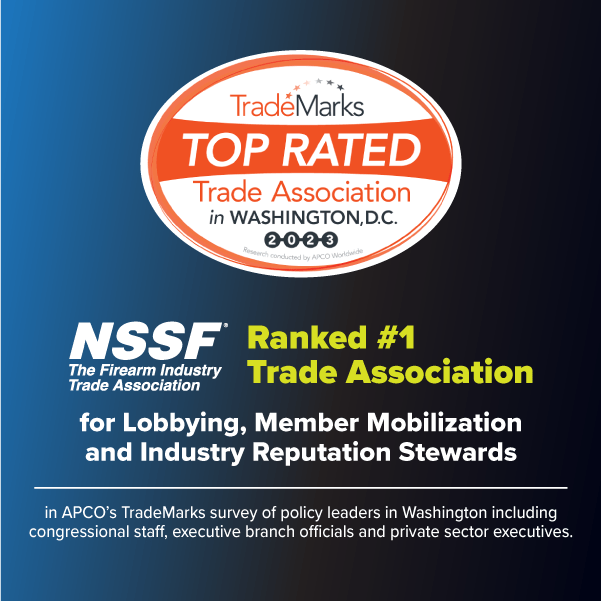 Back to News
Back to News
April 17, 2020
Justice Dept. Commission Agrees: Prosecutions and Partnerships Reduce Crime
Last week the Department of Justice hosted a series of three public hearings of The Presidential Commission on Law Enforcement and the Administration of Justice. NSSF learned that the nation’s top cops are clearly united on what it takes to reduce crime. First, it takes increased, targeted prosecutions. Second, a proven strategy is establishing partnerships across levels of law enforcement entities, neighborhoods and the private sector. Not a single member of the commission spoke about gun control proposals.
The first hearing, held on April 7, began with Amy Blasher, the Unit Chief of the FBI’s Crime Statistic Management Unit. She provided an overview of the downward trend in violent crime since 2009 and summarized the known factors that contribute to levels of crime as “population density, youth concentration, economic conditions, cultural, educational, recreational factors, family conditions, climate, effective strength of law enforcement agencies and citizens’ attitude towards crime and reporting to law enforcement.”
It comes as no surprise to the firearm and ammunition industry that gun ownership, the number of firearms owned by law-abiding Americans or the number of federally licensed firearm retailers were not among the factors listed, despite popular claims by gun control groups.
Enforce Existing Laws
Next up was Justin Herdman, U.S. Attorney for the Northern District of Ohio. Speaking on behalf of the 92 U.S. Attorneys nationwide, he praised the tools that the Trump Administration has provided to him and his colleagues. Herdman called for a “continued and committed prioritization of federal firearms prosecutions especially using under-enforced statutes,” including the prosecution of domestic violence-related firearm cases, straw purchases and drug-related cases.
Herdman offered an example of success in Youngstown in 2019. After an increase in the number of homicides in Youngstown in 2017 and 2018, he worked with the police chief and the local, state and federal partners in that area to develop a strategy “for focused and targeted firearms interdiction associated with particular problem areas in the city.” The success of this strategy was clear, with a 30 percent reduction in violent crime and a 90 percent reduction in homicides compared to the year before.
Law-Abiding Owners
The second hearing, on April 8, was focused on the issue of “criminal gun crimes and related violence.” Leading the witness list was Tom Chittum, Assistant Director of Field Operations for the Bureau of Alcohol, Firearms, Tobacco and Explosives. He noted, “We know that the vast majority of firearms in America are in the hands of responsible, law-abiding adults, and only a small fraction of firearms will ever be used by a relatively few people to commit violent crime. Many of these people are already prohibited from possessing firearms.”
Assistant Director Chittum walked the Commission through the Gun Control Act and the legal right of individuals to make their own firearms as long as they are not engaged in the business. He pointed to criminals obtaining firearms illegally through trafficking, theft from FFLs and individuals and through straw purchases. While the assistant director spoke about criminals who make firearms themselves, he noted that there are no reliable statistics on the frequency of this and that “3D printed firearms are for the most part not common and generally not durable.” He added, “We’ve seen very few recovered in crimes.”
Industry Assistance
Assistant Director Chittum also noted that, “FFLs are a critical partner in promoting public safety because among other things, they keep firearms out of the hands of prohibited persons by running NICS checks and ensuring guns can be traced by keeping accurate records.”
He called for engaging with FFLs and the public to help deter offenses. His recommendations moving forward are to “aggressively pursue investigations of illegal sources of crime guns…[and] aggressively prosecute not just criminals that use or possess firearms, but also the traffickers, unlicensed dealers and straw purchasers that arm them.”
Other witnesses during this hearing repeated the importance of prosecution under existing statutes and the positive impact that deliberate and strategic criminal prosecutions have had in their communities. As Zachary Terwilliger, the U.S. Attorney for the Eastern District of Virginia, stated, “…if we each, state, federal and local, commit to using the firearms statutes we have, and we commit to doing these cases and pushing these cases, even when federal judges may disagree that they belong in federal court, or that… they’re ‘serious enough,’ we are going to continue to make inroads.”
NSSF appreciates the Commission’s dedication to prosecution, and stands ready to assist through NSSF’s ongoing collaborations with the ATF on programs such as helping educate retailers and the public about straw purchasers through Don’t Lie for the Other GuyTM, and increasing education about safe and secure store practices through Operation Secure Store®.
As the hearings continue this week, NSSF looks forward to more information about how the firearm and ammunition industry can support the crucial law enforcement efforts to reduce violent crime in our communities.
You may also be interested in:
https://www.nssf.org/fbi-data-show-more-good-news-on-crime-trends/
Categories: Education, Featured, Government Relations, Manufacturers, Ranges, Retailers, Safety, Top Stories









